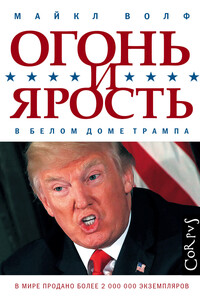Краткая история неолиберализма [заметки]
1
George S., "A Short History of Neoliberalism: Twenty Years of Elite Economics and Emerging Opportunities for Structural Change" в книге W. Bello, N. Bullard, and К. Malhotra (eds), Global Finance: New Thinking on Regulating Capital Markets (London: Zed Books, 2000), 27-35; G. Dumenil, D. Levy, Capital Resurgent: Roots of the Neoliberal Revolution, перевод D. Jeffers (Cambridge, Mass: Harvard University Press, 2004); J. Peck, "Geography and Public Policy: Constructions of Neoliberalism", Progress in Human Geography, 28/3 (2004), 392-405; J. Peck and A. Tickell, "Neoliberalizing Space", Antipode, 34/2 (2002), 380-404; P. Treanor, "Neoliberalizm: Origins, Theory, Definition", http://web.inter.nl.net/users/Paul.Treanor/neo-liberalism.html.
2
Treanor P., "Neoliberalism".
3
Harvey D., TheCondition of Postmodernity (Oxford: Basil Blackwell, 1989); J.-F. Lyotard, ThePostmodern Condition (Manchester: Manchester University Press, 1984), 66.
4
Bush G.W., "President Addresses the Nation in Prime Time Press Conference", 13 April 2004; http://www.whitehouse.gov/ news/releases/2004/0420040413-20.html.
5
Мэтью Арнольд цитируется в книге R. Williams, Culture and Society, 1780-1850 (London: Chatto & Windus, 1958), 118.
6
Juhasz A, "Ambitions of Empire: The Bush Administration Economic Plan for Iraq (and Beyond)", Left Turn Magazine, 12 (Feb./March, 2004), 27-32.
7
Klein N., "Of Course the White House Fears Free Elections in Iraq", Guardian, 24 January 2004, 18.
8
Crampton Т., "Iraqi Official Urges Caution on Imposing Free Market", New York Times, 14 October 2003, С 5.
9
Juhasz A, "Ambitions of Empire", 29.
10
Bush G.W., "Securing Freedom's Triumph", New York Times, 11 September 2002, A33. The National Security Strategy of the United States of America можно также найти на сайте: www.whitehouse. gov/nsc/nss.
11
Fourcide-Gourinchas M. and S. Babb, "The Rebirth of the Liberal Creed: Paths to Neoliberalism in Four Countries", American Journal of Sociology, 108 (2002), 542-9; J. Valdez, Pinochet's Economists: The Chicago School in Chile (New York: Cambridge University Press, 1995); R. Luders, "The Success and Failure of the State-Owned Enterprise Divestitures in a Developing Country: The Case of Chile", Journal of World Business (1993), 98-121.
12
Dahl R. and С Lindblom, Politics, Economy and Welfare: Planning and Politico-Economic System Resolved into Basic Social Pmoesses (New York: Harper, 1953).
13
Krasner S. (ed.) International Regimes (Ithaca, NY: Cornell University Press, 1983); M. Bfyth, Gnat TransjbrmatioHs: Economic Ideas and Institutional Change in the Twentieth Century (Cambridge: Cambridge University Press, 2002).
14
Armstrong P., A. Glynn, andj. Harrison, Capitalism Since World War II: The Marketing and Breaking of the Long Boom (Oxford: Basil Blackwell, 1991).
15
Eley G., Forging Democracy: The History of the Left in Europe, 1850-2000 (Oxford: Oxford University Press, 2000).
16
G. Dumenil, D. Levy, "Neoliberal Dynamics: Towards A New Phase?" в книге К. van der Pijl, L. Assassi, and D. Wigan (eds.), Global Regulation: Managing Crises after the Imperial Turn (New York: Palgrave Macmillan, 2004), 41-63. Там же. Task Force on Inequality and American Democracy, American Democracy in an Age of Rising Inequality (American Political Science Association, 2004); T. Piketty and E. Saez, "Income Inequality in the United States, 1913-1998", Quarterly Journal ofEconomics, 118(2003), 1-39.
17
Программа развития ООН, Human Development Report, 1999 (New York: Oxford University Press, 1999), 3.
18
См, веб-сайт http://www.mohtpelerin.org/aboutmps.html.
19
Взвешенное рассуждение на этутему см.ъ книге H.-J. Chang, Globalisation, Economic Development and the Role of the Statek (London: Zed Books, 2003). Как пишет Пек в "Geography and Public Policy", неолиберализм нередко включает сторонние элементы, так что сложно говорить о нем как о «чистой» теории.
20
История пути Тэтчер к неолиберализму описана в работе D. Yergin, J. Stanislaw, The Commanding Heights: The Battle Between Government and Market Place that is Remaking the Modern World (New York: Simon & Schuster, 1999).
21
Panitch L. and S. Gindin, "Finance and American Empire", in The Empire Reloaded: Socialist Register 2005 (London: Merlin Press, 2005), 46-81.
22
Henwood D., After the New Economy (New York: New Press, 2003), 208.
23
Alvarez L., "Britain Says U.S. Planned to Seize Oil in '73 Crisis", New York Times, 4 January 2004, A6. На тему соглашения с Саудовской Аравией об отправке нефтедолларов в США см. P. Gowan, The Global Gamble: Washington's Faustian Bid for World Dominance (London: Verso, 1999), 20.
24
missed
25
Panitch L.and s. gindin,"finance and American Empire".
26
Многие долговые кризисы 1980-х подроби» описаны в книге P. Gowan TheGlobalGamble.
27
Stiglitz J., Globalization and its Discontents (New York: Norton, 2002).
28
Dumenil G., D. Levy, "The Economics of U.S. Imperialism at the Turn of the 21st Century", Review of International Political Economy, 11/4 (2004), 657-76.
29
Chua A., World, on Fire: How Exposing Free Market Democracy Breeds Ethnic Hatred and Global Instability (New York: Doubleday, 2003) приводит немало примеров на эту тему.
30
Цитируется в книге D. Harvey, Condition of Postmodemity, 158.
31
Martin R., TheFinandaUzMion of Daily Life (Philadelphia: Temple University Press, 2002).
32
Такое определение приводится в работах Дж. Дюменила и Д. Леви.
33
Chua A., World on Fire.
34
Программа развития ООН, Human Development Report, 1996 (New York: Oxford University Press, 1996), 2, и Программа развития ООН, Human Development Report, 1999,5.
35
W. Robinson, A Theory of Global Capitalism: Production, Class, and State in a Transnational World (Baltimore: Johns Hopkins University Press, 2004) приводит прекрасный пример в подтверждение этой теории. К. Polanyi, The Great Transformation (Boston: Beacen«ress,1954 edn.).
36
Ibid., J56.-25.
37
Ibid.
38
Ibid.
39
J.W. Bush, "Securing Freedom's Triumph", см. также F. Zakaria, TheFuture of Freedom: Illiberal Democracy at Home and Abroad (New York: Norton, 2003).
40
missed
41
Gramsci A., Selections from the Prison Notebooks, перев. Q. Hoare and G. Nowell Smith (London: Lawrence & Wishart, 1971), 321-43.
42
Rapley J., Globalization and Inequality: Neoliberalism's Downward Spiral (Boulder, Col: Lynne Reiner, 2004), 55.
43
Gramsci A., Selections from the Prison Notebooks, 149.
44
Court J., Corporateering: How Corporate Power Steals your Personal Freedom (New York: J.P. Tarcher /Putnam, 2003), 33-38.
45
Blyth M., Great Transformations, 155. Информация, приведенная в предыдущем абзаце, взята из ch. 5 и б работы М. Blyth, а также работы Edsall Т., The New Politics of Inequality (New York: Norton, 1985), chs. 2-3.
46
Court J., Corporateering: How Corporate Power Steals your Personal Freedom (New York: J.P. Tarcher /Putnam, 2003), 34.
47
Tabb W., TheLong Default: New York City and the Urban Fiscal Crisis (New York: Monthly Review Press, 1982). Freeman J., Working Class New York: Life and Labor Since World War II (New York: New Press, 2001).
48
Zevin R., "New York City Crisis: Firstact in a New Age of Reaction" в работе Alcalay R., D. Mermelstein (eds.), TheFiscal Crisis of American Cities: Essays on the Political Economy of Urban America with Special Reference to New York (New York: Vintage Books, 1977) 11-29.
49
Tabb W., TheLong Default, 28. О Walter Wriston см. Т. Frank, One Market Under God: Extreme Capitalism, Market Populism and the End of Economic Democracy (New York: Doubleday, 2000), 53-6.
50
Freeman J., Working Class New York.
51
Koolhaas R., Delirious New York (New York: Monacelli Press, 1994); M. Greenberg, "The Limits of Branding: The World Trade Center, Fiscal Crisis and the Marketing of Recovery", International Journal of Urban and Regional Research, 27 (2003), 386-416.
52
Tabb W., TheLong Default. О последующей «продаже» НьюЙорка см. Greenberg M., "The Limits of Branding". О предпринимательстве в крупных городах см. D. Harvey, "From Managerialism to Entrepreneurialism: The Transformation of Urban Governance in late Capitalism", in id., Spaces of Capital (Edinburgh: Edinburgh University Press, 2001), ch. 16.
53
Tabb W., TheLong Default, 15.
54
Edsall Т., The New Politics of Inequality, 128.
55
Court J., Corporateering: How Corporate Power Steals your Personal Freedom (New York, J. P. Tarcher /Putnam, 2003), 29-31 приводит все решения суда, принятые по этим вопросам в 1970-х.
56
Данные, приведенные Edsall Т., The New Politics of Inequality и M. Blyth, Great Transformation, вполне убедительны.
57
Edsall Т., The New Politics of Inequality, 235.
58
Ненависть к гомосексуалистам.— Примеч. пер.
59
Frank, T., What's the Matter with Kansas: How Conservatives Won the Hearts of America (New York: Metropolitan Books, 2004).
60
Kirkpatrick D., "Club of the Most Powerful Gathers in Strictest Privacy, New York Times, 28 August 2004, A10.
61
Cm. Stiglitz J., TheRoaring Nineties (New York: Norton, 2003).
62
Yergin D., J. Stanislaw, Commanding Heights, 337; Stiglitz J., The Roaring Nineties, 108.
63
Edsal J Т., The New Politics of Inequality, 217.
64
И снова в основе рассуждения лежат работы Blyth M., Great Transformations и Edsall Т., The New Politics of Inequality,
65
Angell M., The Truth About the Drug Companies: How They Deceive Us and What To Do About It (New York: Random House, 2004).
66
Blyth M., Great Transformations и Frank Т., One Market Under God, особенно о роли Гилдера.
67
Edsall Т., The New Politics of Inequality, 107.
68
Hall S., Hard Road to Renewal: Thatcherism and the Crisis of the Left (New York: Norton, 1988).
69
Yergin D., J. Stanislaw, Commanding Heights, 92.
70
Benn Т., TheBenn Diaries, 1940-1990, ed. R. Winstone (London: Arrow, 1996).
71
Yergin D., J. Stanislaw, Commanding Heights, 104.
72
Brooks R., "Maggie's Man: We Were Wrong", Observer, 21 June 1992, 15. P. Hall, Governing the Economy: The Politics of State Intervention in Britain and France (Oxford: Oxford University Press, 1986); Fourcade-Gourinchas M. and S. Babb, "The Rebirth of the Liberal Creed".
73
Hayter T. and Harvey D. (eds.), The Factory in the City (Brighton: Mansell, 1995).
74
Rees G. and J. Lambert, Cities in Crisis: The Political Economy of Urban Development in Post-War Britain (London: Edward Arnold, 1985); Harloe M., С Pickyance, J. Urry (eds.), Place, Policy and Politics: Do Localities Matter? (London: Unwin Hyman, 1990); Boddy M., C. Fudge (eds.) Local Socialism? Labour Council and New Left Alternatives (London: Macmillan, 1984).
75
Провал попытки Тэтчер достичь некоторых макроэкономических целей описан в работе P. Hall, Governing the Economy.
76
Chang H.J., Globalisation. Jessop, В., "Liberalism, Neoliberalism, and Urban Governance: A State-Theoretical Perspective", Antipode, 34/2 (2002), 452-72; Poulantzas N., State Power Socialism, перев. P.Camiller (London: Verso, 1978). Clarke S. (ed.) TheState Debate (London: Macmillan, 1991). Haggard S. and R. Kaufman (eds.), The Politics of Economic Adjustment: International Constraints, Distributive Conflicts and the State (Princeton: Princeton University Press, 1992); Nozick M., Anarchy, State and Utopia (New York: Basic Books, 1977).
77
Например, при вливании денег в частный сектор снижаются налоговые отчисления, стимулируя тем самым инвестиции и на этой основе — увеличивая доходы потребителей.— Примеч. пер.)
78
Stiglitz J., TheRoaringNineties получил Нобелевскую премию за исследования в области влияния асимметричной информации на рыночное поведение и его последствия.
79
См. Harvey D., Condition of Postmodernity; D. Harvey, TheLimits to Capital (Oxford: Basil Blackwell, 1982).
80
Evans P., Embedded Autonomy: States and Industrial Transformation (Princeton: Princeton University Press, 1995); R. Wade, Governing the Market (Princeton: Princeton University Press, 1992); Woo-Cummings M. (ed.), The Developmental State (Ithaca, NY: Cornell University Press, 1999).
81
Henderson J., "Uneven Crises: Institutional Foundation of East Asian Turmoil", Economy and Society, 28/3 (1999), 327-68.
82
Stiglitz J., The Roaring Nineties, 227; P. Hall, Governing the Economy; Fourcade-Gourinchas M. and S. Babb, "The Rebirth of the Liberal Creed".
83
Vasquez I., "The Brady Plan and Market-Based Solutions to Debt Crises", The CatoJournal, 16/2 (online).
84
Piore M., and C. Sable, TheSecond Industrial Divide: Possibilities for Prosperity (New York: Basic Books, 1986).
85
Cm. Harvey D., Condition of Postmodernity.
86
Navarro V. (ed.), ThePolitical Economy of Social Inequalities: Consequences for Health and the Quality of Life (Amityville, NY: Baywood, 2002).
87
McCarney, P., and R. Stren, Governance on the Ground: Innovations and Discontinuities in the Cities of the Developing World (Princeton; Woodrow Wilson Center Press, 2003); A. Dixit, Lawlessness and Economics; Alternative Modes of Governance (Princeton: Princeton University Press, 2004).
88
Miliband R., TheState in Capitalist Society (New York: Basic Books, 1969).
89
Rosenblum N. and R. Post (eds.), Civil Society and Government (Princeton: Princeton University Press, 2001); Chambers S. and W. Kymlichka (eds.), AlternativeConceptions of Civil Society (Princeton: Princeton University Press, 2001).
90
Ohmae K., TheEnd of the Nation State: The Rise of the Regional Economies (New York: Touchstone Press, 1996).
91
Court J., Corporateering.
92
Healy D., Let Them Eat Prozac: The Unhealthy Relationship Between the Pharmaceutical Industry and Depression (New York: New York University Press, 2004).
93
Bello W, N. Bullard, K. Malhotra (eds.), GlobalFinance: New Thinking on Regulating Speculative Markets (London: Zed Books, 2000).
94
Schwab K. and C. Smadja цитируется по D. Harvey, Spaces of Hope (Edinburgh: Edinburgh University Press, 2000), 70.
95
Wang H., China's New Order: Society, Politics andEconomy in Transition (Cambridge, Mass.: Harvard University Press, 2003), 44.
96
Mann J., TheRise of the Vulcans: The History of Bush's War Cabinet (New York: Viking Books, 2004); S. Drury, Leo Strauss and the American Right (New York: Palgrave Macmillan, 1999).
97
Hofstadter R., The Paranoid Style in American Politics and Other Essays (Cambridge, Mass.: Harvard University Press, 1996 edn.).
98
Harvey D., TheNew Imperialism, ch. 4.
99
Chang H. J., Globalisation, 31.
100
Kaldor M., New and Old Wars: Organized Violence in a Global Em (Cambridge: Polity, 1999), 130.
101
Frank Т., What's the Matter with Kansas.
102
Lee Kuan Yew, From Third World to First: The Singapore Story 1965-2000 (New York: HarperCollins, 2000).
103
Peck J., "Geography and Public Policy".
104
Всемирный банк, World Development Report 2005: A Better Investment Climate for Everyone (New York: Oxford University Press, 2004).
105
Gowan, TheGlobal Gamble.
106
Dumenil G., D. Levy, "The Economics of US Imperialism".
107
Stiglitz J., TheRoaring Nineties.
108
Brenner R., TheBoom and the Bubble: The US in the World Economy (London: Verso, 2002).
109
Corbridge S., Debt and Development (Oxford: Blackwell, 1993).
110
Stiglitz J., Globalization and its Discontents, 57.
111
Chua A., World on Fire.
112
Henderson J., "Uneven Crises"; Stiglitz J., Globalization and its Discontent, 99, соглашается с этой точкой зрения: "Либерализация капитала стала основной причиной кризиса".
113
Stiglitz J., Globalization and its Discontent, 129-30.
114
Ibid.
115
Программа, в соответствии с которой иностранный капитал открывал в стране предприятия, получавшие право импортировать материалы и оборудование в беспошлинном режиме для производства или сборки, чтобы готовый продукт снова вывезти для реализации за пределы Мексики.— Примеч. пер.
116
Vasquez, "The Brady Plan".
117
MacLeod D., Downsizing the State: Privatization and the Limits of Neoliberal Reform in Mexico (University Park: Pennsylvania University Press, 2004).
118
Lomnitz-Adler C, "The Depreciation of Life During Mexico City's Transition into "'The Crisis'" в работе Schneider J. and I. Susser (eds.), Wounded Cities (New York: Berg, 2004), 47-70.
119
Davis D., Urban Leviathan: Mexico City in the Twentieth Century ' (Philadelphia: Temple University Press, 1994).
120
MacLeod D., Downsizing the State, 90-94.
121
Ibid., 71.
122
Nash J., Mayan Visions: The Quest for Autonomy in an Age of Globalization (New York: Routledge, 2001).
123
Forero J., "As China Gallops, Mexico Sees Factory Jobs Slip Away", New York Times, 3 sept. 2003, A2. "Мексика, долгое время остававшаяся лидером в области низкобюджетного производства и дешевого экспорта в США… стремительно уступает позиции Китаю с его сотнями миллионов дешевых рабочих… По данным мексиканского правительства, с 2001 года было закрыто 3700 мексиканских предприятий-та^мйа, что привело к потере 218 000 рабочих мест". Последние данные показывают, что с ростом эффективности и гибкости производства на предприятиях maquila постепенно растет и количество рабочих мест; близость к США позволяет гарантировать стабильный поток мексиканских товаров, благодаря чему американские розничные торговцы могут минимизировать размер запасов». См. Е. Malkin, 'A Boom Along the Border", New York Times, 26 August 2004, Wl and W7.
124
MacLeod D., Downsizing the State, 99-100; Chua, World on Fire, 61-63 кратко описывает деятельность Карлоса Слима.
125
Sharapura S., "What Happened in Argentina?", Chicago Business Online. 28 May 2002, http://www.chibus.com/news/2002/ 05/28/Worldview.
126
Petras J. and H. Veltmeyer, System in Crisis: The Dynamics of Free Market Capitalism (London: Zed Books, 2003), 87-10.
127
Soederberg S., Contesting Global Governance in the South: Debt, Class, and the New Common Sense in Managing Globalisation (London: Pluto Press, 2005).
128
J. Salerno, "Confiscatory Deflation: The Case of Argentina", Ludwig von Mises Institute, http://www.mises.org?fullstory. aspx?control/890.
129
Petras J. and H. Veltmeyer, System in Crisis, 86.
130
Chibber V., Locked in Place: State-Building and Late Industrialization in India (Princeton: Princeton University Press, 2003).
131
Ibid., 245.
132
Wade R. and F. Veneroso, "The Asian Crisis: The High Debt Model versus the Wall Street – Treasury – IMF Complex", New Left Review, 228 (1998), 3-23.
133
Woo-Cummings M., South Korean Anti-Americanism, Japan Policy Research Institute Working Paper 93 (July 2003).
134
Ibid., 5.
135
Stiglitz J., Globalization and its Discontents.
136
Ibid., 130.
137
Woo-Cummings M., South Korean Anti-Americanism, 4.
138
Stiglitz J., Globalization and its Discontents, 130, 206-7.
139
Blyth, Great Transformations, 205.
140
Ibid., 238-42.
141
Ibid., 229-30.
142
Ibid., 231-3.
143
Bond P., Elite Transition: From Apartheid to Neoliberalism in South Africa (London: Pluto Press, 2000). Тот же автор, Against Global Apartheid: South Africa Meets the World Bank, the IMF and International Finance (London: Zed Books, 2003).
144
Всемирный банк, World Development Report 2005.
145
Stiglitz J., Globalization and its Discontents часто возвращается к этому вопросу.
146
Mittelman J., The Globalization Syndrome: Transformation and Resistance ( Princeton: Princeton University Press, 2000), 90-106.
147
Lardy N. China's Unfinished Economic Revolution (Washington, DC Brookings Institution, 1998);Li S.-M. andW.-S. Tang, Chinas Regions, Polity and Economy (Hong Kong: Chinese University Press, 2000).
148
Я в большей степени склоняюсь ко второму объяснению, хотя и не так категорично, как Харт-Ландсберг М. и П. Баркетг, чьим работам я доверяю. См. Hart-Landsberg M. and P. Burkett, China and Socialism: Market Reforms and Class Struggle (New York, 2004; Monthly Review, 56/3).
149
Cao L., "Chinese Privatization: Between Plan and Market", L,aw and Contemporary Problems, 63/13 (2000), 13-62.
150
Это точку зрения отстаивает Y. Huang, "Is China Playing by the Rules?", Congressional – Executive Commission on China, http://www.cecc.gov/pages/ hearings/092403/huang.php.
151
Wang, China's New Order, 66.
152
Hale D. and Hale L., "China Takes Off, Foreign Affairs, 82/6 (2003), 36-53.
153
KahnJ. andj. Yardlcy, "Amid China's Boom, No Helping Hand for Young Qingming", New York Times, 1 August 2004, Al and A6.
154
YardleyJ., "In a Tidal Wave, China's Masses Pour from Farm to City", New York Ttmes, 12 September, 2004, Week in Review, 6.
155
KahnJ. andj. Yardley, "Amid China's Boom".
156
Stevenson C, Reforming State-Owned Enterprises: Past Lessons for Current Problems (Washington, DC: George Washington University), http://www.gwu.edu/-ylowrey/stevensonc.html.
157
Hart-Landsberg M. and P. Burkett, China and Socialism, 35. Li S. M. and W.S. Tang, China's Regions.
158
Hart-Landsberg M. and P. Burkett, China and Socialism, 38.
159
См. там же,-» также в Global Policy Forum, Newsletterf 'Chma'& Privatization vhttp:www;gl6balpblicy.6rg.socecon/ffd/fdi/ 200^/1112chiriaprivatizati6n.'
160
Li S.-M. and W.-S. Tang, China's Regions, ch. 6.
161
Ibid!, 82. :
162
Chiria Labor Watch, "Maihland China Jobless Situation Grim, Minister Says", http://www.chinalaborvvatch.org/eh/web/ artide.php?aiticleid=50043, 18 November 2004.
163
Kahh J:, "China Gambles on Big Projects for its Stability", New York Times, 13 January 2003, Al and A8; K. Bradsher, "Chinese Builders Buy Abroad", New York Times, Z Dec. 2003, Wl and W 7; Fishman Т., 'The Chinese Century7 ;' New York Times Magazine, 4July 2004, 24-51.
164
French H., "New Boomtowns Change Path of China's Growth", New York Times, 28 July2004, Al and A8.
165
Bradsher K., "Big China Trade Brings Port War", International Herald Tribune, 27 January 2003, 12.
166
Sharma S., "Stability Amidst Turmoil: China and the Asian Financial Crisis", Asia Quarterly (Winter 2000), www.fas.harvard.edu/~asiactr/haq/2000001/O001aOO6.htm.
167
Hale and Hale, "China Takes Off", 40.
168
Liu H., "China: Banking on Bank Reform", Asia Times Online, www.atimes.com, 1 June 2002.
169
Bradsher K., "A Heated Chinese Economy Piles up Debt", New York Times, 4 September 2003, A14 and C4; K. Bradsher, "China Announces New Bailout on Big Banks", NewYork Times, 7 January 2004, Cl.
170
Liu H., "China: Banking on Bank Reform".
171
Burckley C, "Let a Thousand Ideas Flower: China Is a New Hotbed of Research", New York Times, 13 September 1004, Cl and C4.
172
Warner J., "Why the World's Economy is Stuck on a Fast Boat to China", The Independent, 24 January, 2004, 23.
173
Burckley C, "Rapid Growth of China's Huawei Has Its High-Tech Rivals on Guard", New York Times, 6 October 2003, Cl and C3.
174
Bradsher K., "GM To Speed Up Expansion in China: An Annual Goal of 1.3 Million Cars", New York Times, 8 June 2004, Wl and W7. . . .
175
Zhang Z., Whither China? Intellectual Politics in Contemporary China (Durham, NC: Duke University Press, 2001).
176
Bradsher K., "China's Factories Aim to Fill Garages Around the World", New York Times, 2 November 2003, International Section, 8. Тот же автор, "GM To Speed,Up Expansion in China". Тот же автор, "Is China The, Next Bubble?",.New York Times, 18 January 2004, Section?, land 4. :, , :
177
Bradsher K., "Chinese Provinces Form Regional Power Bloc", New York Times, 2 June 2004, Wl и W7.
178
Yasheng H and T. Khanna, "Can India Overtake China?", China New Magazine, 3 April 2004; www.chinanowmag,eom/busines*/bu«ne*s.htHn. . –
179
Dicken P., Global Shift: Rnkaping the global economic map in the 21" century, 4th ed (New York: Guilford Press, 2003), 332.
180
Hout T,., and j. Lebretton, "The Real Contest Between America and China", The №U Street journal on Line, \ 6 September 2003. Интересно, что именно эту точку зрения отстаивает 1С. Маркс в отношении разницы в применении технологии в США и Великобритании в ХГХ веке– С«– Capital (New York: International Publishers, 1967), i. 371-2.
181
Cm. Hart-Landsberg M. and P. Burkett, China and Socialism, 94-95; K. Brooke, "Korea Feeling Pressure as China Grows", New York Times, 8 January 2003, Wl and W7.
182
Belson J., "Japanese Capital and Jobs Flowing to China", New York Times, 17 February 2004, Cl and C4.
183
Cm. Forero, "As China Gallops".
184
Bradsher K., "China Reports Economic Growth of 9.1% in 2003", New York Times, 20 February 2004, Wl and W7.
185
Bradsher K., "Taiwan Watches Its Economy Slip to China", New York Times, 13 December 2004, C7.
186
Arnold W, "ВНР Billiton Remains Upbeat Over Bet on China's Growth", New York Times, 8 June 2004, Wl and W7.
187
Landler M., "Hungary Eager and Uneasy Over New Status", New York Times, 5 March 2004, Wl and W7; K. Bradsher, "Chinese Automaker Plans Assembly Line in Malaysia", New York Times, 19 October 2004, Wl and W7.
188
Bradsher К., "China's Strange Hybrid Economy", New York Times, 21 December, 2003, C5.
189
Мнение Волкера приводится по работе P. Bond, "US and Global Economic Volatility: Theoretical, Empirical and Political Considerations", представленной на Empire Seminar, York University, в ноябре 2004.
190
Wang, China's New Order; T. Fishman, China Inc.: How the Rise of the Nest Superpower Challenges America and the World (New York: Scribner, 2005).
191
Bradsher K., "Now, a Great Leap Forward in Luxury", New York Times, 10 June 2004, Cl and C6.
192
Wu X. and J. Perloff, China'sIncome Distribution Over.Time: Reasons for Rising Inequality, CUDARE Working Papers 977 (Berkeley: University of California at Berkeley, 2004).
193
Wang, China's New Order.
194
Wei L., Regional Development in China (New York: Routledhe/ Curzon, 2000).
195
Shi L., "Current Conditions of China's Working Class" China Study Group, 3 November 2003, http://www.chinastudygroup. org/index.php?action=article&type.
196
China Labor Watch, "Mainland China Jobless Situation Grim".
197
Shi L., "Current Conditions of China's Working Class".
198
Barboza D., "An Unknown Giant Flexes its Muscles", New York Times, 4 December 2004, Al and C3; S. Lohr, "IBM's Sale of PC Unit Is a Bridge Between Companies and Cultures", New York Times, 8 December 2004, Al and C4; S. Lohr, "IBM Sought China Partnership, Not Just a Sale", New York Times, 13 December 2004, Cl and C6.
199
Wang, China's New Order;]. Yardley, "Farmers Being Moved Aside by China's Real Estate Boom", New York Times, 8 December 2004, Al and A16.
200
Cartier C, "Zone Feber. The Arable Land Debate and Real Estate Speculation: China's Evolving Land Use Regime and its Geographical Contradictions", Journal of Contemporary China, 10 (2001), 455-69; Z. Zhang, Strangers in the City: Reconfigurations of Space, Power and Social Networks within China's Floating Population (Stanford: Stanford University Press, 2001).
201
Cartier C, "Symbolic City /Regions and Gendered Identity Formation in South China", Provincial China, 8/1 (2003), 60-77; Z. Zhang, "Mediating Time: The 'Rice Bowl of Youth' in Fin-deSiecle Urban China", Public Culture, 12/1 (2000), 93-113.
202
Lee S.K., "Made in China: Labor as a Political Force?", вступительная речь, 2004 Mansfield Conference, University of Montana, Missoula, 18-20 April 2004.
203
Ibid.; J. Yardley, "Chinese Appeal to Beijing to Resolve Local Complaints", New York Times, 10 March 2004, A3.
204
Rosenthal E., "Workers Plight Brings New Militancy in China", New York Times, 10 March 2003, A8.
205
Cody E., "Workers in China Shed Passivity: Spate of Walkouts Shakes Factories", Washington Post, 27 November 2004, A01; A. Cheng, "Labor Unrest is Growing in China", International Herald Tribune Online, October 27, 2004; J. Yardley, "Farmers Being Moved Aside".
206
Lee, "Made In China".
207
Цитируется в работе Cody, "Workers in China Shed Passivity", см. также выпуски China Labor Bulletin.
208
Cody E., "Workers in China Shed Passivity".
209
Marx К., Theories of Surplus Value, pt. 2 (London: Lawrence & Wishart, 1969), 200.
210
Gray J., False Dawn: The Illusions of Global Capitalism (London: Granta Press, 1998).
211
Bond, "US and Global Economic Volatility".
212
Наиболее исчерпывающие официальные заявления можно найти в документах Всемирной Комиссии по социальным последствиям глобализации (World Commission on the Social Dimension of Globalization) A Fair Globalization: Creating Opportunities for AU (Geneva, International Labour Office, 2004); Программа развития ООН, Human Development Report, 199;. Human Development Report,2003.
213
Weisbrot M., D. Baker, E. Kraev, J. Chen, "The Scorecard on Globalization 1980-2000: Its Consequences for Economic and Social Well-Being" в работе Navarro V. and C. Muntaner, Political and Economic Determinants of Population Health and Well Being (Amityville, NY: Baywood, 2007), 91-114.
214
Monbiot G., "Punitive – and It Works", Guardian, 11 January 2005, публикация online.
215
Henwood, After the New Economy. G. Dumenil, D. Levy, Capital Resurgent, fig. 17.1.
216
Существует масса публикаций на тему глобализации. Свою точку зрения я высказал в работе Harvey, SpacesofHope.
217
Ibid., ch. 4.
218
Derthick M. and P. Quirk, The Politics of Deregulation (Washington, DC: Brookings Institution Press, 1985); Megginson W, J. Netter, "From State to Market: A Survey of Empirical Studies of Privatization", Journal of Economic Literature (2001), online.
219
Dicken, Global Shift, ch. 13.
220
Названная по имени Карла Понци, который еще в 1921 году изобрел мошенническую финансовую пирамиду.— Примеч. пер.
221
Панич и Гиндин подчеркивают роль производных финансовых инструментов в процессе распределения рисков и выполнения лидерских функций "Finance and American Empire"; S. Soederberg, "The New International Financial Architecture: Imposed Leadership and 'Emerging Markets'", SocialistRegister (2002), 175-92.
222
Corbridge, Debt and Development; S. George, A Fate Worse Than Debt (New York: Grove Press, 1988).
223
Toussaint E., Your Money or Your Life: The Tyranny of Global Finance (London: Pluto Press, 2003); J. Stiglitz, Globalizationand its Discontents, 225; Wade R. and F. Veneroso, "The Asian Crisis", 21.
224
Farah J., "Brute Tyranny in China", WorldNetDaily.com, опубликовано 15 марта 2004; I. Peterson, "As Land Goes To Revitalization, There Go the Old Neighbors", New York Times, 30 January 2005, 29 and 32.
225
Holloway J. and E. Pelaez, Zapatista: Reinventing Revaluation (London: Pluto, 1998); J. Stedile, "Brazil's Landless Battalions" в книге Т. Mertes (ed.) A Movement of Movements (London: Verso, 2004).
226
Harvey D., "The Art of Rent: Globalization, Monopoly and the Commodifkation of Culture", Socialist Register (2002), 93-110.
227
Polanyi K., TheGreat Transformation, 73.
228
Bales K., Disposable People: New Slavery in the Global Economy (Berkeley: University of California Press, 2000>; M. Wright, "The Dialectics of Still Life: Murder, Women and the Maquiladoras", Public Culture, 11 (1999), 453-74.
229
Ross A., Low Pay High Profile: The Global Push for Fair Labor (New York: The New Press, 2004), 124.
230
SeabrookJ., In the Cities of the South: Scenes from a Developing World (London: Verso, 1996), 103.
231
Sommer J., "A Dragon Let Loose on the Land: And Shanghai is at the Epicenter of China's Economic Boom", Japan Times, 26 October 1994, 3.
232
Lee C.K., Gender and the South China Miracle (Berkeley: University of California Press, 1998); C. Cartier, Globalizing South China (Oxford: Basil Blackwell, 2001), особенно глава 6.
233
Глобальное влияние обсуждается в деталях в работе Navarro The Political Economy of Social Inequalities; Navarro V. and C. Muntaner, Political and Economic Determinants.
234
J. Kahn, "Violence Taints Religion's Solace for China's Poor", New York Times, 25 November 2004, Al and A24.
235
Frank, What's the Matter with Kansas.
236
Myers N., Ultimate Security: The Environmental Basis of Political Stability (New York: Norton, 1993). Тот же автор, The Primary Resource: Tropical Forests and Our Future/Updated for the 1990s (New York: Norton, 1993); Novacek M. (ed.), TheBiodiversity Crisis: Losing What Counts (New York: American Museum of Natural History, 2001).
237
Научная программа изменения климата "Our Changing Planet: The US Climate Change Science Program for Fiscal Years 2004 and 2005", http://www.usgcrp.gov/usgcrp/Library/ ocp2004-5; M. Townsend and P. Harris, "Now the Pentagon Tells Bush: Climate Change Will Destroy Us", Observer, 22 February 2004, online.
238
Bradsher К., "China's Boom Adds to Global Wanning", New York Times, 22 October 2003, Al and A8; J. Yardley, "Rivers Run Black, and Chinese Die of Cancer", New York Times, 12 September 2004, Al and A17; D. Murphy, "Chinese Province: Stinking, Filthy, Rich", WaU Street Journal, 27 October 2004, B2H.
239
Petras J. and H. Veltmeyer, System in Crisis, ch. 6.
240
American Lands Alliance, "IMF Policies Lead to Global Deforestation", http://americanlands.org/imfreport.htm.
241
Rodrik D., The Global Governance of Trade: As If Development Really Mattered (New York: United Nations Development Program, 2001), 9.
242
Chandler D., From Kosovo to Kabul: Human Rights and International Intervention (London: Pluto Press, 2002), 89.
243
Ibid., 230.
244
Wallace Т., "NGO Dilemmas: Trojan Horses for Global Neoliberalism?", Socialist Register (2003), 202-19. Более общее исследование роли неправительственных организаций приведено в работе Edwards, M., Hulme, D., (eds.), NonGovernmental Organizations: Performance and Accountability (London: Earthscan, 1995).
245
Gill L., Teetering on the Rim (New York: Columbia University Press, 2000); Cowan J., M.-B. Dembour, R. Wilson (eds.), Culture and Rights: Anthropological Perspectives (Cambridge: Cambridge University Press, 2001).
246
Bartholomew A., J. Breakspear, "Human Rights as Swords of Empire", Socialist Register (London: Merlin Press, 2003), 124-45.
247
Ibid., 126.
248
Chandler, From Kosovo to Kabul, 27, 218.
249
Ibid., 235.
250
Marx K., Capital, i 225.
251
Harvey D., "The Right to the City", в работе R. Scholar (ed.), Divided Cities: Oxford Amnesty Lectures 2003 (Oxford: Oxford University Press, готовится к изданию).
252
Harvey D., TheNew Imperialism, ch. 2.
253
Цитируется по работе Винсенто Наварро, содержащей глубокую критику Сен: "Development as Quality of Life: A Critique of Amartya Sen's Development as Freedom", в работе Navarro V. (ed.), The Political Economy of Social Inequalities, 13-26.
254
Polanyi K., TheGreat Transformation, 257.
255
Zakaria, TheFuture of Freedom; A. Sen, Development as Freedom (New York: Knopf, 1999).
256
Marx K., Capital, iii. 820.
257
Kaplan R., TheComing Anarchy: Shattering the Dreams of the Post Cold War (New York: Vintage, 2001).
258
Walton J., "Urban Protest and the Global Political Economy: The IMF Riots" в работе Smith M. and J. Feagin (eds.), The Capitalist City (Oxford: Blackwell, 1987), 354-86.
259
Jensen D., TheCulture of Make Believe (New York: Context Books, 2002). Zergan J., Future Primitive and Other Essays (Brooklyn, NY: Autonomedia, 1994.
260
Kahn, "Violence Taints Religion's Solace for China's Poor".
261
Gills B. (ed.), Globalization and the Politics ofResistance (New York: Palgrave, 2001); Mertes T. (ed.), A Movement of Movements (London: Verso, 2004); Wignaraja P. (ed.), New Social Movements in the South: Empowering the People (London: Zed Books, 1993); Brecher J.( T. Costellb, B. Smith, Globalization from Below: The Power of Solidarity (Cambridge, Mass.: South End Press, 2000).
262
Stiglitz J., Globalhatum. and its Discontents и The Roaring Nineties; P. Krugman, The Great Unmoelling: Losing Our Wty in the Twentieth Century (New York: Norton, 2003); G. Soros; GeorgeSoros on Gtoba&atwn (New York Public Affairs, 2002); Ibid., The Bubble of American Supremacy: Correcting the Misuse of American Power (New York Public Affairs, 2003); Sachs J., "New Global Consensus on Helping the Poorest of the Poor", Global Policy Emm Newsletter, 18 April 2000. Сакс, например, говорит: «Я не верю в способность богатейших стран управлять миром, или в возможность принятия решений путем голосования на международном уровне, когда вес отдельного голоса определяется деньгами, как это происходит сейчас в МВФ или Всемирном банке. Я не верю и в правительство, сформированное сильнейшими бюрократиями, свободными'от обязательств, например МВФ, или в реальность управления на условиях, определенных богатейшими странами и навязанных безнадежно бедным».
263
Я цитирую только два: Программа развития ООН, Human Development Report 1999. Всемирная Комиссия по социальным последствиям глобализации (World Commission on the Social Dimension of Globalization), A Fair Globalization.
264
Held D., Global Govenant: The Social Democratic Alternative to the Washington Consensus (Cambridge: Polity, 2004). Я исследую некоторые аспекты применения этики космополитизма в D. Harvey, "Cosmopolitanism and the Banality of Geographical Evils", также см. Comaroff J. and J. Comaroff, Millennial Capitalism and the Culture of Neoliberalism (Durham, NC: Duke University Press, 2000), 271-310.
265
В отношении Волкера см. Bond, "US and Global Economic Volatility", Muhleisen M. and C. Towe (eds.), US Fiscal Policies and Priorities for hong-Run Sustainability, Occasional Paper 227 (Washington, DC: International Monetary Fund, 2004).
266
Dumenil G., D. Levy, "Neoliberal Dynamics".
267
Harvey D., Condition of Postmodernity, 169.
268
Arendt H., Imperialism (New York: Harcourt Brace Janovich, (редакция 1968 года)); D. Harvey, The New Imperialism, 12-17.
269
King D., The Liberty of Strangers: Making the American Nation (New York: Oxford University Press, 2004).
270
Arrighi G. and B. Silver, Chaos and Governance in the Modern World System (Minneapolis: Minnesota University Press, 1999). См. также послесловие к изданию в мягкой обложке D. Harvey, TheNew Imperialism (Oxford: Oxford University Press, 2005).
271
Конституционные нормы, гарантирующие права граждан и ограничивающие действия органов государственной власти.— Примеч. пер.
272
Цитируется по D. Harvey, Condition of Postmodernity, 168-70.
273
Amin S., "Social Movements at the Periphery" цитируется по Wignaraja P. (ed.), New SociaLMovements in the South, 76-100.
274
Bello W., Deglobalization: Ideas for a New World Economy (London: Zed Books, 2002); Bello W. N. Bullard, K. Malhotra (eds.), Global Finance; S. George…'Another World is Possible IF… (London: Verso, 2003); Fisher, W., Ponniah, T. (eds.), Another World is Possible: Popular Alternatives to Globalization at the Worlds Social Forum ((London: Zed Books, 2003); P. Bond, Talk Left Walk Right: South Africa's Frustrated Global Reforms (Scottsville, South Africa: University of Kwa-Zulu – Natal Press, 2004); Mertes, A Movement of Movements; Gill, Teetering on the Rim; Brecher J., T. Costello, B. Smith, Globalization from Below.
275
Harvey D., Spaces of Hope, 248-52.
276
Рабочая группа Американской ассоциации политологов по вопросам неравенства и американской демократии (Task Force on Inequality and American Democracy), в работе American Democracy in an Age of Rising Inequality, рисует довольно мрачную картину.
277
К этому вопросу Wang в работе China's New Order нередко возвращается, говоря о Китае.

Термин «постмодерн» – один из самых сложных и противоречивых в социальной и гуманитарной науках. На протяжении нескольких десятилетий разные мыслители и ученые предлагали собственное толкование этого понятия. Самый известный на сегодняшний день социальный географ Дэвид Харви – один из них. В своей главной книге Харви объясняет, какой смысл подразумевает термин «постмодерн» как состояние актуальной культуры, и показывает, что за ощутимыми и динамичными переменами в культурной жизни стоит логика капитала.

Перед читателем одна из классических работ Д. Харви, авторитетнейшего англо-американского географа, одного из основоположников «радикальной географии», лауреата Премии Вотрена Люда (1995), которую считают Нобелевской премией по географии. Книга представляет собой редкий пример не просто экономического, но политэкономического исследования оснований и особенностей городского развития. И хотя автор опирается на анализ процессов, имевших место в США и Западной Европе в 1960–1970-х годах XX века, его наблюдения полувековой давности более чем актуальны для ситуации сегодняшней России.

Фашизм есть последнее средство, за которое хватается буржуазия, чтобы остановить неумолимо надвигающуюся пролетарскую революцию. Фашизм есть продукт страха буржуазии перед этой революцией. А так как революция назревает во всех странах, в которых существует капитализм, то и фашизм в виде уже сформировавшихся организаций или в виде зародышей — существует повсюду. В сборнике помещены статьи о фашизме в ряде европейских стран.

В книге рассказывается история главного героя, который сталкивается с различными проблемами и препятствиями на протяжении всего своего путешествия. По пути он встречает множество второстепенных персонажей, которые играют важные роли в истории. Благодаря опыту главного героя книга исследует такие темы, как любовь, потеря, надежда и стойкость. По мере того, как главный герой преодолевает свои трудности, он усваивает ценные уроки жизни и растет как личность.

В XX веке была сделана попытка реализовать в политической практике теории, возникшие в XIX веке. И поскольку XIX век был веком утопий, XX век стал веком узаконенного террора. В XX веке была изобретена псевдодуховность, потому что современный рационализм иссушил души людей. Но эта ложная духовность основывается на рационализме прошлого. Исчезнувшие религии заменены мифами о возрождении. Политика потеснила Церковь, изобретя свой собственный катехизис, свой ритуал и назначив своих собственных пастырей. Пообещав рай на земле, она совершенно естественно порождает политический фанатизм.Все политические концепции XX века претендуют на революционность, за исключении концепции правового государства.

От автора: Этот текст видится мне вполне реальным вариантом нашего государственного устройства в недалеком будущем. Возможно, самым реальным из всех прогнозируемых. Дело в том, что у каждой государственной системы есть вполне определенные исторические и технологические предпосылки. Верховая езда родила рыцарство и феодализм. Огнестрельное оружие родило «демократию по-американски». Сейчас интернет, продвинутые технологии и переизбыток огнестрельного оружия, рождают новую власть. Новое мироустройство, которого не было никогда прежде. Добро пожаловать в новый прекрасный мир!

Свою новую книгу Юрий Мухин начинает с критического разбора печально знаменитых «Протоколов сионских мудрецов», чтобы показать, какие представления о государстве, политике и экономике существуют в конспирологической литературе, как они сбивают с толку тех, кто интересуется этой темой. Далее он пишет о том, что в действительности представляет собой государство, на каких принципах оно основано, какая связь присутствует между политикой и экономикой. Не довольствуясь теоретическими построениями, автор приводит примеры из жизни западных государств и нашей страны – в частности, подробно останавливается на анализе либерализма в прошлом и настоящем, на влиянии этого политэкономического течения на Россию. В последней части книги Ю.

Книга Майкла Волфа “Огонь и ярость. В Белом доме Трампа” вышла в январе 2018 года и мгновенно стала бестселлером. В основе книги – более двухсот интервью, взятые у различных экспертов и сотрудников администрации президента, а также разговоры, свидетелем которых становился Волф, имевший свободный доступ в Белый дом. Журналист описывает различные интриги и закулисные игры в Белом доме, приводит самые нелицеприятные высказывания соратников президента друг о друге и о нем самом.